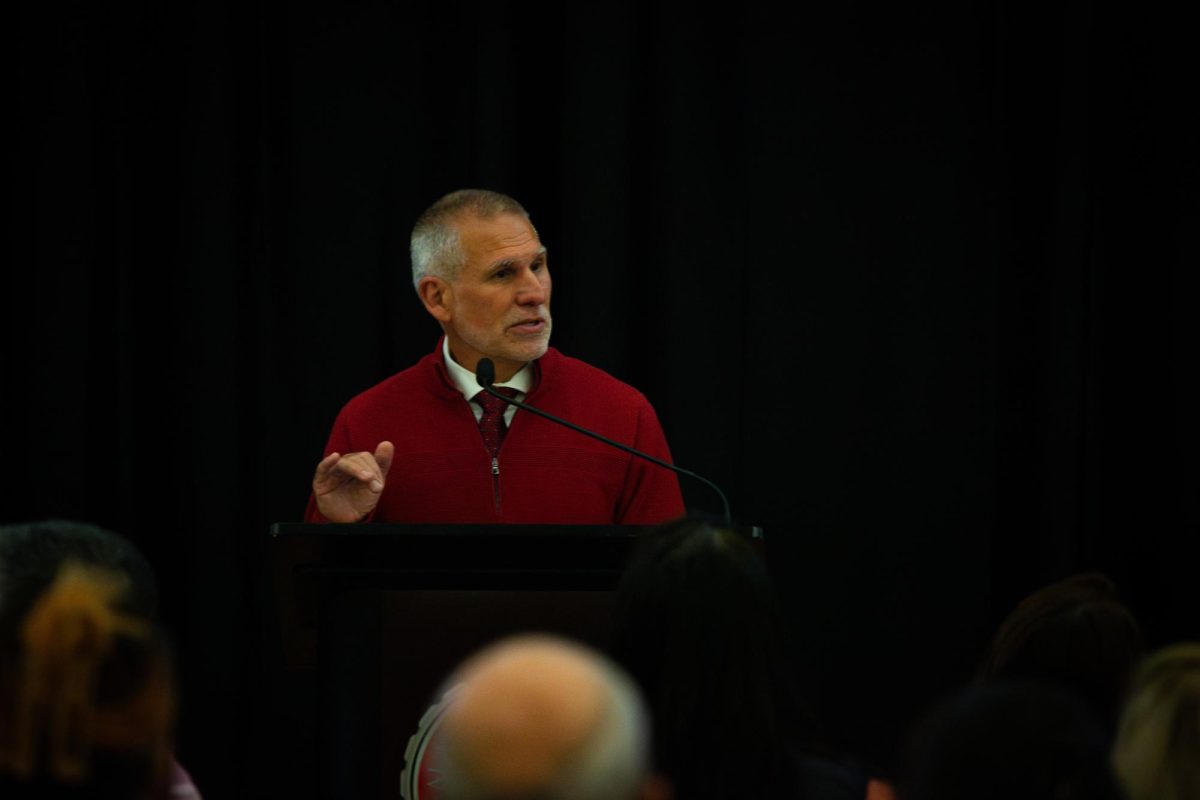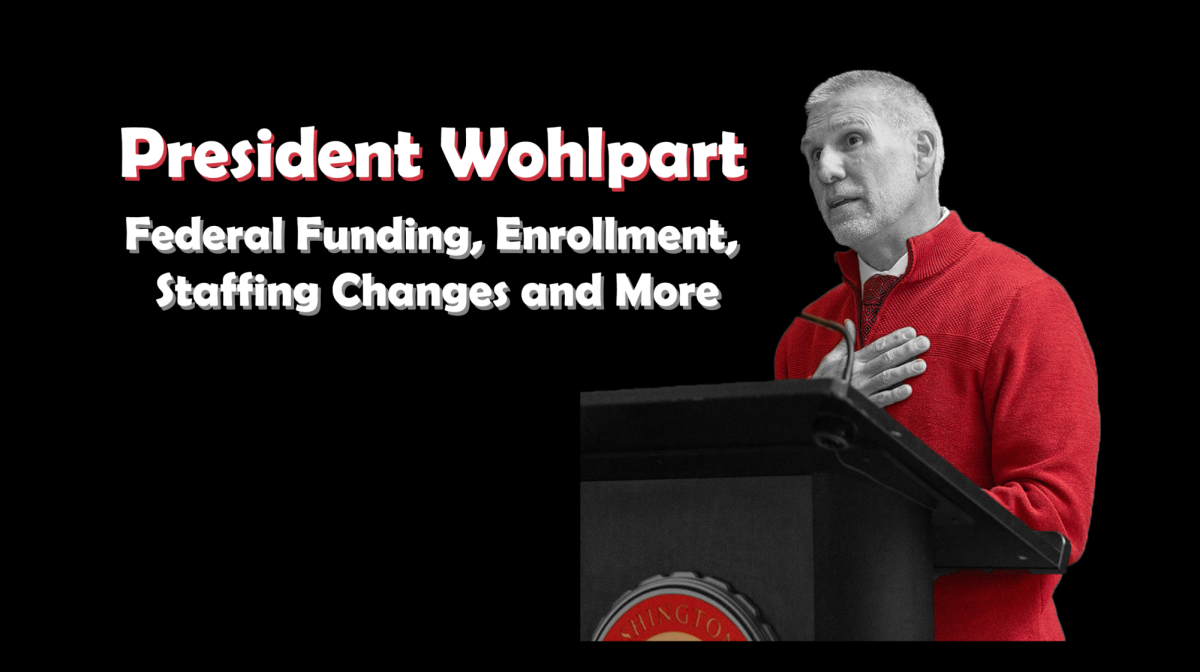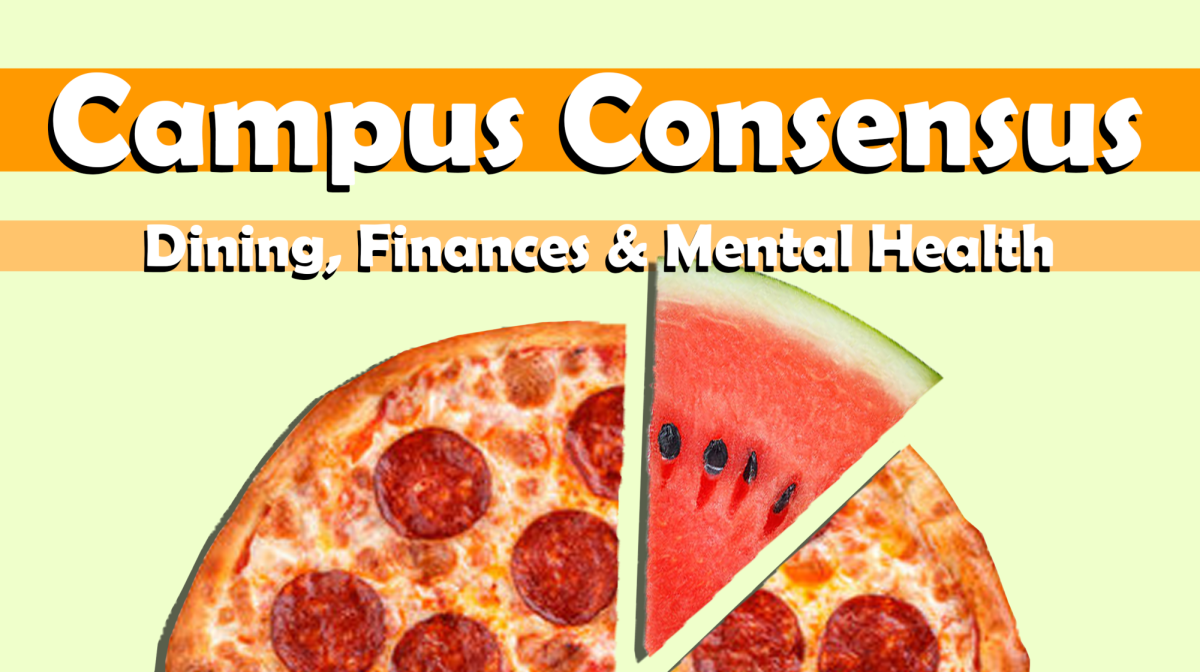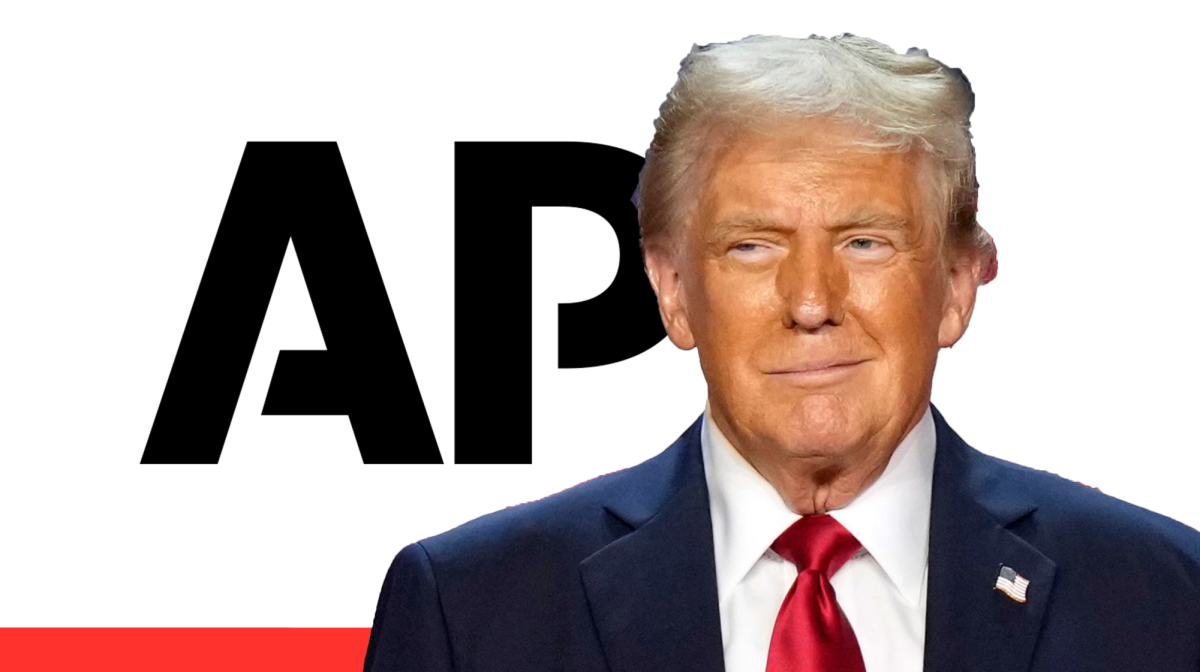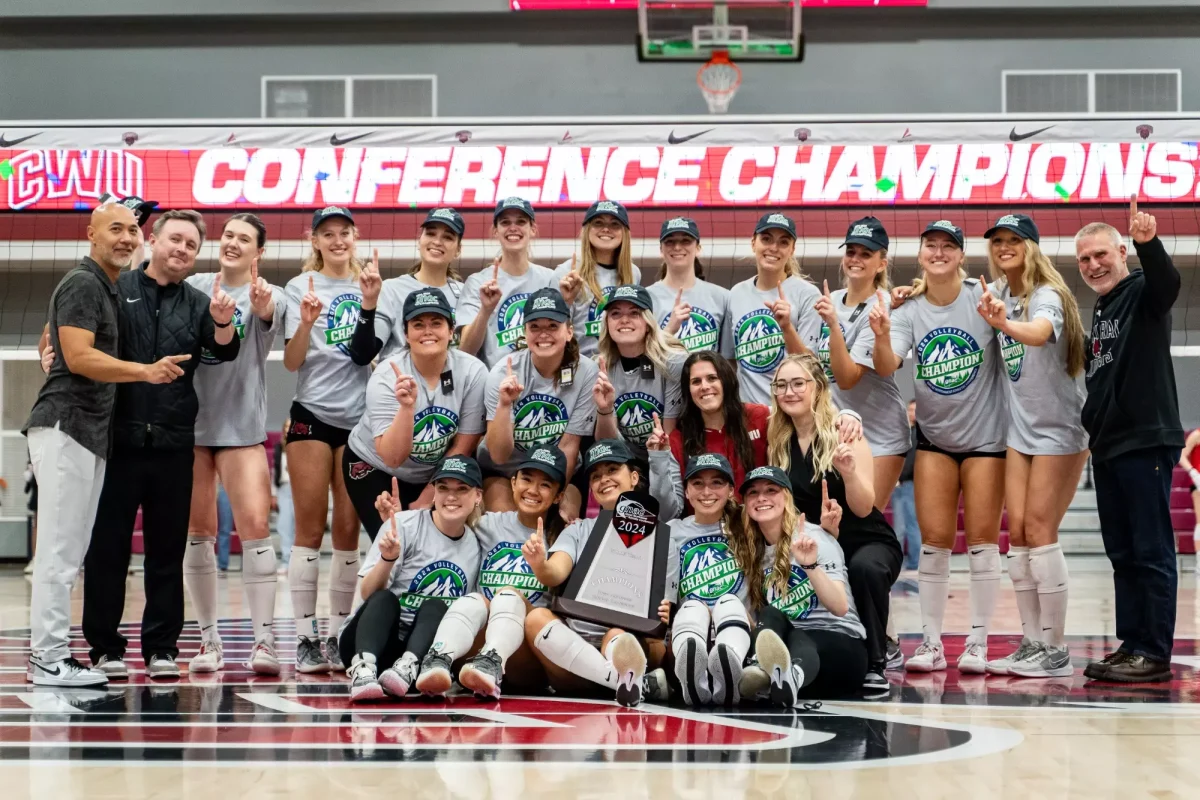President Jim Wohlpart revealed that CWU has lost $26 million in tuition money due to enrollment decline at his annual State of the University Address (STU) on Oct. 4 in the SURC Ballroom.
Wohlpart elaborated on CWU’s low enrollment numbers, and how they have affected the budget of the university. “For the last 20 years,” Wohlpart said, “Central Washington University slowly and gradually built towards our peak enrollment in 2017, 18 and 19, 20 years to expand our programs, initiatives, resources for all those, employees, and training them and in four years, we lost all of that work. And with that, we lost $26 million of tuition.” Enrollment is down to its lowest since 2002 according to the slideshow accompanying Wohlpart’s address, and fall-to-fall retention is down to 69%.
In 2017, the state committed to provide the money for 50% of cost of living increases for staff, as the other half was expected to be able to be covered by tuition. “The tuition didn’t backfill the other 50% which meant, effectively, we had less money to pay employees,” Wohlpart said. “What this formula has failed to understand, and what I’ve been working diligently to help our legislators and governer’s office understand is that we used to use […] the dollars from the tuition increase to pay for the inflationary increase to goods and services, all the things we buy and pay for cost more, Canvas and PeopleSoft, paper, pens and computers. Since 2017 we haven’t had any money in our revenue stream to pay for those inflationary increases.”
The directive of the STU is to update the CWU community on the university’s vision, goals and how the university has and will continue to strive to meet these goals. After Wohlpart’s address, events then continued with several breakout sessions for further information on university goals.
There was conversation throughout the second floor of the SURC as attendees made their way to the break-out sessions after Wohlpart’s address. “I really appreciated the honesty around challenges that we’re facing,” Allyson Rogan-Klyve, the chair of the science and math education department, said. “There was no attempt to sugarcoat things or deny some of the challenges we’re facing. There wasn’t any sort of false hope or that it’s going to be easy, or that there’s clear cut answers to the challenges, because they are so complex, but having an opportunity to again be together as a whole university body sort of creates that hope that we, the people in the room, are the ones that can make the situation better.”
The event—which, according to an email sent out by Wohlpart, had around 200 to 300 participants throughout the day—was attended mostly by staff, with few students outside of student government coming.
“I feel like a lot of students feel like there’s definitely issues and problems that are going on with the university, but they’re not entirely sure where those challenges are coming from and how they impact everyone exactly,” ASCWU President Malik Cantu said. “Oftentimes events like this feel like they’re only catered for staff and faculty and other administrators. But honestly, there’s so much useful information that they try to make as accessible as possible to students at these different events. It’s a good way to be in the know and get all the facts and the reality of what’s going on at the university.”
During his presentation, Wohlpart also addressed three national challenges and how CWU is facing them. The first challenge was Climate Change and Sustainability. Wohlpart cited the Climate Change 2023 Synthesis Report done by the Intergovernmental Panel on Climate Change (IPCC). Wohlpart then shared CWU’s goals related to climate action including reducing greenhouse gas emissions by 45% by 2030, 70% by 2040 and being completely carbon neutral by 2050, as well as sharing plans for solar panel renovations on campus, specifically on top of Dugmore Hall.
“The second national challenge that we must engage in higher education is the continued existence of racism and other forms of discrimination that are also connected to a deeply unjust economic system,” Wohlpart said. Along with several statistics showing how CWU has grown its diverse staff base in recent years, Wohlpart explained how CWU is working to disaggregate its data on student populations to show a clearer picture of where focuses need to lie.
Wohlpart also discussed the importance of the Multicultural Center that is currently being planned as well as the relationship between CWU and the Yakima School District. “The necessity of engaging and ending discrimination of any and all kinds is an essential component of sustainability and the fraying of our democracy. For without equity and justice, we cannot weave together the torn fabric of our society in wholesome, sustainable ways,” Wohlpart said.
The third and final national challenge is the “fraying of our democracy.” Wohlpart stated that universities are not just bystanders in democracy, but an important component in its success. He highlighted the importance of shared governance within the university and the work done by students on campus to encourage civic engagement through voting.
When discussing the “fraying of our democracy,” Wohlpart laid out three initiatives.
The first, creating an Institute for Civic and Community Engagement that works with SLICE to further grow community partnerships and provide learning and engagement opportunities for students. The second, working through a model developed by Campus Compact to enact a Civic Action Plan. Campus Compact focuses on student voices and leadership, expanding student programming and providing support systems according to their website. The third was creating a university-wide committee which brings together faculty, staff, students and more roles to create a model for “shared governance” at CWU.


